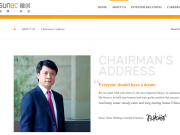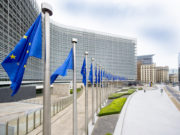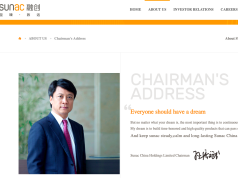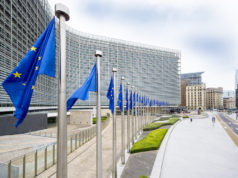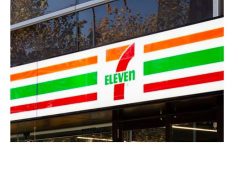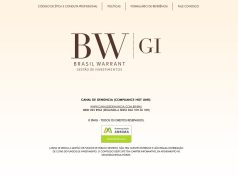United States Fines Top Management Consulting Firm McKinsey $650 Million Settlement & 5-Year Deferred Prosecution Agreement to Dismiss Criminal Charges for Helping Opioid Manufacturers Increase Sales Which Contributed to Addiction Epidemic & Deaths, Opioid is Substance Found in Opium Poppy Plant and Used for Pain Relief, ex-McKinsey Senior Partner Martin E. Elling Currently Residing in Thailand Charged for Obstruction of Justice
17th December 2024 | Hong Kong
The United States Department of Justice has fined top management consulting firm McKinsey $650 million in settlement & 5-year deferred prosecution agreement to dismiss criminal charges for helping opioid manufacturers increase sales which contributed to addiction epidemic & deaths in the United States. The ex-McKinsey Senior Partner Martin E. Elling who is currently residing in Thailand, has been charged for obstruction of justice. In 2024 November, McKinsey was in talks with United States Department of Justice to pay $600 million settlement & dismiss criminal charges for helping opioid manufacturers increase sales which contributed to addiction epidemic & deaths in the United States. Opioid is a substance found in opium poppy plant, and used in cases including for pain relief. United States Centers for Disease Control & Prevention: “Nearly 108,000 people died from drug overdose in 2022 and approximately 82,000 of those deaths involved opioids (about 76%).” John Hopkins Medicine: “Opioids are a class of drugs that derive from, or mimic, natural substances found in the opium poppy plant. Opioids work in the brain to produce a variety of effects, including pain relief. Opioid drugs include prescription pain medicine and illegal drugs. Some people use opioids because of the euphoria (“high”) they can produce. Opioid drugs can cause addiction, also known as opioid use disorder (OUD).” In 2023 April, McKinsey reorganized its Bankruptcy Advisory business after several lawsuits and government investigations on possible conflict of interests and insider trading, paying $18 million in 2021 for insider trading government probe & $15 million in 2019 for conflict of interest disclosures. The business unit is part of McKinsey Recovery and Transformation Services (RTS). McKinsey is founded in 1926 in Chicago, United States. McKinsey is a corporation but govern ourselves like a partnership, and are owned and governed by our partners worldwide. McKinsey has a global reach of 133 cities in 67 countries, 35,000 employees. McKinsey has no headquarter, with each Managing Partner choosing his or her home office. The global managing partner is Bob Sternfels, since 2021. United States Department of Justice (13/12/24): “McKinsey & Company Inc. (McKinsey), a global management consulting firm based in New York, has agreed to pay $650 million to resolve a criminal and civil investigation into the firm’s consulting work with opioids manufacturer Purdue Pharma L.P. (Purdue). The resolution pertains to McKinsey’s advice to Purdue concerning the sales and marketing of Purdue’s extended-release opioid drug, OxyContin, including a 2013 engagement in which McKinsey advised on steps to “turbocharge” sales of OxyContin. Today’s resolution marks the first time a management consulting firm has been held criminally responsible for advice resulting in the commission of a crime by a client and reflects the Justice Department’s ongoing efforts to hold actors accountable for their roles in the opioid crisis. The resolution is also the largest civil recovery for such conduct. Additionally, a former McKinsey senior partner who worked on Purdue matters has been charged with obstruction of justice in federal court in Abingdon, Virginia. Martin E. Elling, 60, a U.S. citizen currently residing in Bangkok, Thailand, has been charged with one count of knowingly destroying records, documents and tangible objects with the intent to impede, obstruct and influence the investigation and proper administration of a matter within the jurisdiction of the Justice Department. Elling has agreed to plead guilty and is expected to appear in federal court in Abingdon to enter his plea and for sentencing at later dates. As part of the government’s resolution with McKinsey, the company has entered into a five-year deferred prosecution agreement (DPA) (part one and part two) in connection with a criminal Information filed in U.S. District Court for the Western District of Virginia against McKinsey’s U.S. subsidiary (McKinsey & Company Inc. United States, “McKinsey U.S.”). The information charges McKinsey U.S. with one felony count of knowingly destroying records, documents and tangible objects with the intent to impede, obstruct, and influence the investigation and proper administration of a matter within the jurisdiction of the Justice Department; and one misdemeanor count of knowingly and intentionally conspiring with Purdue and others to aid and abet the misbranding of prescription drugs, held for sale after shipment in interstate commerce, without valid prescriptions. McKinsey has agreed to pay a penalty of over $231 million, a forfeiture amount of over $93 million (reflecting all money it was paid by Purdue from 2004 to 2019) and a payment of $2 million to the Virginia Medicaid Fraud Control Unit to resolve the criminal allegations. McKinsey also has entered into a civil settlement agreement in which it will pay over $323 million to resolve its liability under the False Claims Act for allegedly providing advice to Purdue Pharma L.P. that caused the submission of false and fraudulent claims to federal healthcare programs for medically unnecessary prescriptions of OxyContin, as well as allegedly failing to disclose to the U.S. Food and Drug Administration (FDA) conflicts of interest arising from McKinsey US’s concurrent work for Purdue and the FDA. This brings the total payments under the global resolution to $650 million. Today’s filing includes a 71-page Agreed Statement of Facts, which provides a detailed account of McKinsey’s work with Purdue relating to OxyContin. As part of the resolution, McKinsey has agreed to implement a significant compliance program, including a system of policies and procedures designed to identify and assess high-risk client engagements. As part of this compliance program, McKinsey will implement new document retention procedures and training for all partners, officers and employees who provide or implement advice to clients. This compliance program is in addition to the provisions negotiated between McKinsey and the Department in a concurrent resolution with McKinsey & Company Africa that was announced on Thursday, Dec. 5. McKinsey has also agreed that it will not do any work related to the marketing, sale, promotion or distribution of controlled substances during the five-year term of the DPA. The resolution requires McKinsey’s Managing Partner to certify, on an annual basis, the firm’s compliance with its obligations under the DPA and federal law. As described in the DPA, McKinsey received credit for its cooperation with the United States in connection with the criminal investigation, including providing updates regarding information obtained through is internal investigation; highlighting documents of interest in voluminous productions; and facilitating interviews. McKinsey also engaged in extensive remedial measures, including voluntarily stopping all work in 2019 on any opioid-specific business issues; terminating two senior partners, including Elling, who communicated about deleting opioid-related documents concerning Purdue; hiring a new chief legal officer and chief ethics and compliance officer; significantly enhancing its new client selection framework; and deploying a formalized diligence review and intake process for all clients. McKinsey has agreed to continue to cooperate with the United States.” More info below:
McKinsey’s Criminal Liability for Misbranding – The criminal misbranding charge was based on McKinsey’s advice to Purdue Pharma L.P. as set forth in the Agreed Statement of Facts filed today. Between 2004 and 2019, McKinsey contracted with Purdue on 75 different engagements in the United States. In 2007, a Purdue affiliate pleaded guilty to misbranding OxyContin, from 1996 through 2001, by falsely marketing it as less addictive, less subject to abuse and diversion, and less likely to cause dependence and withdrawal than other pain medications, and Purdue entered into a five-year corporate integrity agreement (CIA) with HHS-OIG. After the 2007 guilty plea, McKinsey partners maintained close contact with Purdue, and in 2009, worked with Purdue to enhance “brand loyalty” for OxyContin and protect market share. In 2010 McKinsey worked with Purdue to obtain FDA approval for a version of OxyContin that was reformulated with abuse-deterrent properties. Following the introduction of reformulated OxyContin in August 2010, OxyContin sales immediately began to decline. Purdue studied the drivers for this decline and attributed it, in large part, to a drop in prescriptions for individuals abusing OxyContin and increases in regulatory safeguards intended to hinder medically unnecessary prescribing of OxyContin.
- In May 2013, Purdue retained McKinsey to conduct a rapid assessment of the underlying drivers of OxyContin performance, identify key opportunities to increase near-term OxyContin revenue and develop plans to capture priority opportunities. This 2013 effort was called Evolve to Excellence, or “E2E,” and included McKinsey advising Purdue on how to “turbocharge” the sales pipeline for OxyContin by, among other strategies, intensifying marketing to High Value Prescribers, included prescribers who were writing opioid prescriptions for uses that were unsafe, ineffective, and medically unnecessary. McKinsey consultants spoke with Purdue about the concerns and increasing reluctance of pharmacists and pharmacy chains to fill prescriptions for OxyContin as abuse of the drug rose. McKinsey consultants also went on several “ride-alongs” with Purdue sales representatives in the field, as these sales representatives called on prescribers and pharmacists. In notes about one of these ride-alongs, a McKinsey consultant wrote, in part, “Pharmacist; [had] a gun and was shaking; abuse is definitely a huge issue[.]”
- In August 2013, McKinsey partners met with certain members of the Purdue Board of Directors (members of the family that controlled Purdue) to present McKinsey’s findings and proposal; as one McKinsey partner reported afterwards, “[b]y the end of the meeting the findings were crystal clear to everyone and they gave a ringing endorsement of ‘moving forward fast.’” McKinsey also described for Purdue the financial value at stake: “hundreds of millions, not tens of millions.” For Purdue and McKinsey, E2E was a financial success. Their targeting of High Value Prescribers slowed OxyContin’s declining sales and kept Purdue’s profits flowing at the expense of public health. After the conclusion of McKinsey’s work for Purdue on E2E, McKinsey performed additional work with Purdue that also sought to maximize OxyContin sales by further targeting sales efforts to High Value Prescribers.
Obstruction of Justice by Former McKinsey Senior Partner – According to the charging documents filed today, Elling served as the Director of the client services team for approximately 30 of McKinsey’s engagements with Purdue. He had a senior, relationship-focused role with respect to the E2E engagement and was involved in securing the engagement for McKinsey. On July 4, 2018, Elling allegedly emailed another senior partner: “Just saw in the FT that [Purdue board member] is being sued by states attorneys general for her role on the [Purdue] Board. It probably makes sense to have a quick conversation with the risk committee to see if we should be doing anything other [than] eliminating all our documents and emails. Suspect not but as things get tougher there someone might turn to us.” According to court documents, forensic analysis of Elling’s McKinsey-issued laptop found that Elling in fact removed materials related to McKinsey’s work for Purdue from the laptop, as well as a Purdue-related folder from his Outlook email account. Elling faces a maximum penalty of 20 years in prison, three years of supervised release and a fine up to $250,000 for the obstruction of justice charge. A federal district court judge will determine any sentence after considering the U.S. Sentencing Guidelines and other statutory factors.
False Claims to Federal Healthcare Programs – The department’s civil False Claims Act settlement resolves allegations that, from 2013 to 2014, McKinsey US, by advising Purdue to turbocharge OxyContin marketing to High Value Prescribers, some of whom were already prescribing very large quantities of OxyContin, as a means to increase OxyContin sales, and despite its awareness of the opioid crises, thereby knowingly caused false and fraudulent claims for OxyContin to be submitted to Medicare, Medicaid, TRICARE, the Federal Employees Health Benefit Program and the Veterans Health Administration. Along with the civil settlement, McKinsey US entered into a five-year Corporate Integrity Agreement with HHS-OIG. The CIA, HHS-OIG’s first with a management consulting firm, contains novel obligations regarding risk assessment and quality control. First, the CIA requires McKinsey’s Compliance Committee to establish a robust risk evaluation process, evaluating engagement risks and providing quality oversight for certain client deliverables. Second, it requires McKinsey to establish a Quality Review Program to assess the quality of McKinsey’s advice to certain life sciences and health care clients with the dual goals of ensuring that McKinsey complies with applicable laws and does not provide or assist clients with plans, advice, or strategies that violate the law. HHS-OIG will select an independent Compliance Expert to review McKinsey’s systems and processes under the Quality Review Program and to review a sample of McKinsey client engagements, including the advice provided to those clients.
False Claims to FDA – The department’s civil False Claims Act settlement also resolves allegations that, from 2014 to 2017, McKinsey US knowingly misled the FDA by assigning consultants to concurrently work on both FDA projects and competitively sensitive Purdue projects, contrary to McKinsey US’ conflict of interest policy. While soliciting a contract from the FDA, McKinsey US represented to the FDA that it had a conflict-of-interest policy in which its consultants serving the FDA would not be assigned to a competitively sensitive project for a significant period of time following an assignment for FDA. The FDA then awarded McKinsey US the first in a series of contracts on a project relating to the monitoring of the safety of FDA-regulated products. McKinsey US admitted that it did not inform the FDA that its consultants worked on the Purdue projects around the same time those consultants also worked on the FDA project.
Top Management Consulting Firm McKinsey in Talks with United States Department of Justice to Pay $600 Million Settlement & Dismiss Criminal Charges for Helping Opioid Manufacturers Increase Sales Which Contributed to Addiction Epidemic & Deaths, Opioid is Substance Found in Opium Poppy Plant and Used for Pain Relief

22nd November 2024 – Top management consulting firm McKinsey in talks with United States Department of Justice to pay $600 million settlement & dismiss criminal charges for helping opioid manufacturers increase sales which contributed to addiction epidemic & deaths in the United States. Opioid is a substance found in opium poppy plant, and used in cases including for pain relief. United States Centers for Disease Control & Prevention: “Nearly 108,000 people died from drug overdose in 2022 and approximately 82,000 of those deaths involved opioids (about 76%).” John Hopkins Medicine: “Opioids are a class of drugs that derive from, or mimic, natural substances found in the opium poppy plant. Opioids work in the brain to produce a variety of effects, including pain relief. Opioid drugs include prescription pain medicine and illegal drugs. Some people use opioids because of the euphoria (“high”) they can produce. Opioid drugs can cause addiction, also known as opioid use disorder (OUD).” In 2023 April, McKinsey reorganized its Bankruptcy Advisory business after several lawsuits and government investigations on possible conflict of interests and insider trading, paying $18 million in 2021 for insider trading government probe & $15 million in 2019 for conflict of interest disclosures. The business unit is part of McKinsey Recovery and Transformation Services (RTS). McKinsey is founded in 1926 in Chicago, United States. McKinsey is a corporation but govern ourselves like a partnership, and are owned and governed by our partners worldwide. McKinsey has a global reach of 133 cities in 67 countries, 35,000 employees. McKinsey has no headquarter, with each Managing Partner choosing his or her home office. The global managing partner is Bob Sternfels, since 2021.
Top Management Consulting Firm McKinsey Reorganized Bankruptcy Advisory Business after Lawsuits & Government Investigations on Conflict of Interests & Insider Trading, Paid $18 Million in 2021 for Insider Trading Probe & $15 Million in 2019 for Conflict of Interest
7th April 2023 – Top management consulting firm McKinsey is reorganizing its Bankruptcy Advisory business after several lawsuits and government investigations on possible conflict of interests and insider trading, paying $18 million in 2021 for insider trading government probe & $15 million in 2019 for conflict of interest disclosures. The business unit is part of McKinsey Recovery and Transformation Services (RTS). McKinsey is founded in 1926 in Chicago, United States. McKinsey is a corporation but govern ourselves like a partnership, and are owned and governed by our partners worldwide. McKinsey has a global reach of 133 cities in 67 countries, 35,000 employees. McKinsey has no headquarter, with each Managing Partner choosing his or her home office. The global managing partner is Bob Sternfels, since 2021.
McKinsey – McKinsey is a global management consulting firm committed to helping organizations accelerate sustainable and inclusive growth. We work with clients across the private, public, and social sectors to solve complex problems and create positive change for all their stakeholders. We combine bold strategies and transformative technologies to help organizations innovate more sustainably, achieve lasting gains in performance, and build workforces that will thrive for this generation and the next. McKinsey is founded in 1926 in Chicago, United States. McKinsey is a corporation but govern ourselves like a partnership, and are owned and governed by our partners worldwide. McKinsey has a global reach of 133 cities in 67 countries, 35,000 employees. McKinsey has no headquarter, with Managing Partner choosing his or her home office. The global managing partner is Bob Sternfels, since 2021.
Sign Up / Register
Caproasia Users
- Manage $20 million to $3 billion of assets
- Invest $3 million to $300 million
- Advise institutions, billionaires, UHNWs & HNWs
Caproasia Platforms | 11,000 Investors & Advisors
- Caproasia.com
- Caproasia Access
- Caproasia Events
- The Financial Centre | Find Services
- Membership
- Family Office Circle
- Professional Investor Circle
- Investor Relations Network
Monthly Roundtable & Networking
Family Office Programs
The 2025 Investment Day
- March - Hong Kong
- March - Singapore
- July - Hong Kong
- July - Singapore
- Sept- Hong Kong
- Sept - Singapore
- Oct- Hong Kong
- Nov - Singapore
- Visit: The Investment Day | Register: Click here
Caproasia Summits
- The Institutional Investor Summit
- The Investment / Alternatives Summit
- The Private Wealth Summit
- The Family Office Summit
- The CEO & Entrepreneur Summit
- The Capital Markets Summit
- The ESG / Sustainable Investment Summit


